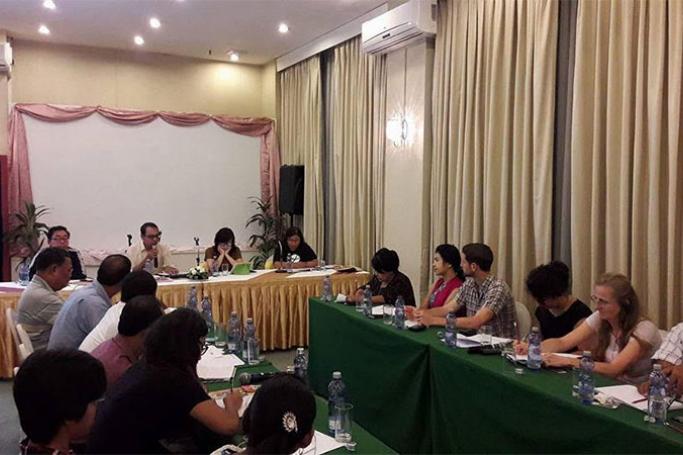Myanmar Information Development Organization (MIDO) Director Htike Htike Aung said that the Telecommunication Law was enacted with the objective of protecting the customers of telecommunication services but it was found to have weaknesses in protecting the people and it needs to be amended.
Htike Htike Aung discussed this issue at the “Human Rights Defenders Forum” held on June 2 at Summit Park View Hotel in Yangon.
The discussion came as yet two more people were arrested under a section of the law - The Voice editor-in-chief Kyaw Min Swe and columnist British Ko Ko Maung who were registered with this section 66(d) by the Myanmar Army were formally arrested at Bahan Myoma Police Station with this case.
The pair face a lawsuit filed on May 17 over a satirical article they published concerning the country’s armed conflict and the peace process. The story was published in The Voice on March 26.
Htike Htike Aung said there was a need to review the law.
“The main objective of this law is to promote development of the country and the upgrading of technology and also to protect the customers. But we have not seen yet any tangible protection given to the people so far. So in this Telecommunication Law we need to review the entire law, not only the section 66(d). It is found it should be amended,” she told people at the forum.
This Telecommunication Law which was enacted on October 8, 2013, has 86 sections and the most used section among them is section 66(d) that allows people to sue people for alleged defamation.
There were very few cases registered under this law when President Thein Sein was in power but according to the statistics collected by Telecommunication Law research group, there are a total 67 cases registered with section 66(d) until May 24, 2017 after the current government took power. Most of these cases are registered by civilians against fellow civilians. Many cases are political parties or pro-government citizens versus activists or people making negative comments online.
You are viewing the old site.
Please update your bookmark to https://eng.mizzima.com.
Mizzima Weekly Magazine Issue...
14 December 2023
New UK Burma sanctions welcome...
13 December 2023
Spring Revolution Daily News f...
13 December 2023
Spring Revolution Daily News f...
12 December 2023
Spring Revolution Daily News f...
11 December 2023
Spring Revolution Daily News f...
08 December 2023
Spring Revolution Daily News f...
07 December 2023
Diaspora journalists increasin...
07 December 2023
Guatemala leader vows to stand by 'solid' ally Taiwan












